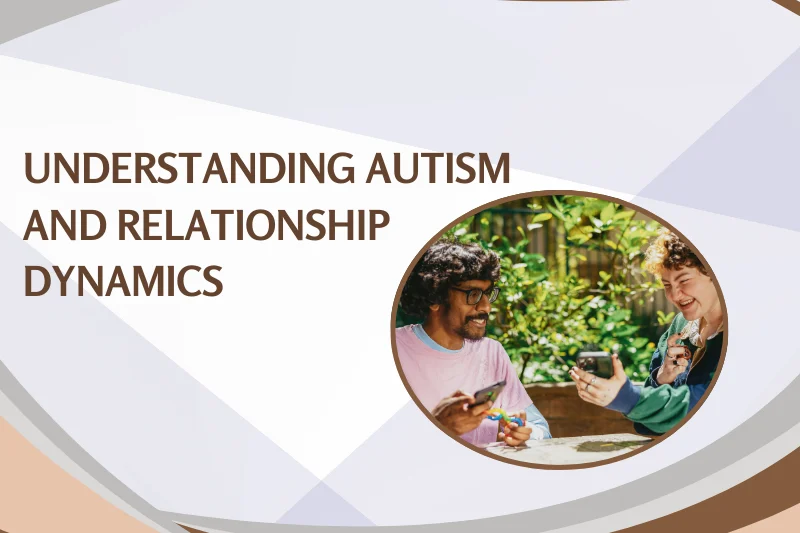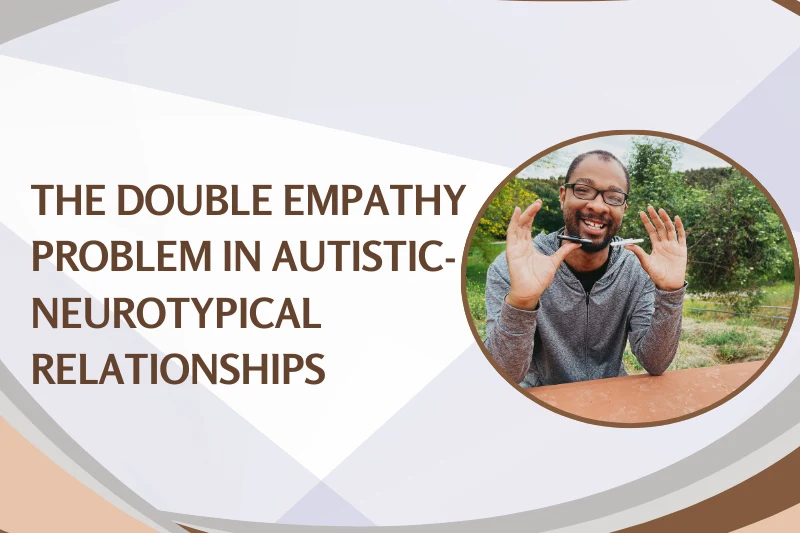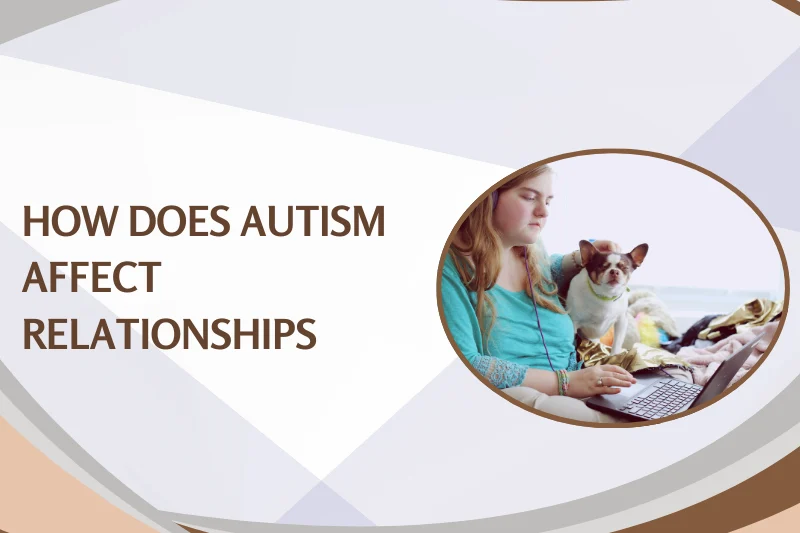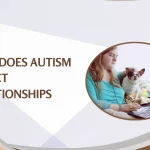Relationships can be tough for people with autism. They might struggle with social cues or need things to be the same. But, they can still form deep connections and love in their own way.
So, what does autism really mean for relationships? Exploring the challenges autistic people face can help us understand how to build strong bonds. This is true for both those with and without autism.
Discover how does autism affect relationships through communication, emotional expression, and social interactions. Learn about challenges and strategies for building meaningful connections.
Table of Contents
Understanding Autism and Relationship Dynamics

Autism Spectrum Disorder (ASD) is a lifelong condition that affects social skills, communication, and behavior. Many autistic people want to be in romantic relationships, but they face unique challenges. With understanding, open communication, and a willingness to adapt, autistic and neurotypical relationships can succeed.
Defining Autism Spectrum Disorder
High-functioning autism, or ASD level 1, involves social and communication challenges. People with high-functioning autism often have good thinking skills and language. Yet, they may struggle with planning, organizing, and controlling their emotions and impulses.
Common Misconceptions About Autism in Relationships
Many think autistic people lack empathy or don’t want relationships. But, autistic individuals may have different sensitivities to sensory input. This can affect their emotional understanding, nonverbal cues, and empathy.
The Reality of Autistic Relationships
Autistic people often find romantic relationships tough, especially with emotional understanding and social interactions. Yet, they can be honest, loyal, and creative problem solvers. With the right communication, emotional connections, and support, autistic-neurotypical relationships can flourish.

How Does Autism Affect Relationships: Key Challenges and Impact
For people on the autism spectrum, dating can be tough. Autism affects many parts of relationships, from the first date to long-term love. It’s important to understand these differences to build strong, loving bonds.
One big challenge is the difference in how we plan things. Autistic folks like routine and planning well ahead. But, they might struggle with sudden changes or new ideas. This can cause problems in spontaneous moments or when trying to please a partner.
Autistic people often have deep, focused interests. They might ignore daily tasks or get upset if they can’t follow their passions. This can make relationships tricky, as neurotypical partners might feel left out or not understand their interests.
Another big issue is understanding nonverbal signals and literal speech. Autistic folks might miss out on sarcasm or jokes, leading to misunderstandings. They might also find some sensations too much, affecting their comfort in places like dating scenes or intimate moments.
Yet, research shows autistic people want love, and they’re happy in relationships with others like them. Trust, shared interests, and routine can help autistic and neurotypical partners connect deeply.
In the end, knowing how autism affects love is key. It helps us be more understanding, improve communication, and build strong, loving partnerships.
See Also : does bad childhood affect relationships
The Double Empathy Problem in Autistic-Neurotypical Relationships

Autistic people often struggle to understand social cues and what others mean. This is called the “theory of mind” deficit. But, new research shows it’s not just about autism. It’s about the lack of mutual understanding between people with different experiences and views.
Understanding Different Perspectives
The double empathy problem happens when autistic and neurotypical people can’t connect. Studies show that non-autistic people might find it hard to read autistic emotions. This leads to bad first impressions.
This problem isn’t one-sided. It’s about a lack of understanding and shared experiences between different people.
Bridging Communication Gaps
To solve the double empathy problem, both autistic and neurotypical partners need to make an effort. Autistic adults often want to connect socially, despite what others think. By learning each other’s communication styles, we can build stronger, more supportive relationships.
Building Mutual Understanding
Creating mutual understanding takes patience, openness, and a willingness to change how we communicate. Groups like the National Autistic Society and Studio3 use this theory in their training. They aim to better support autistic people and reduce social challenges they face.
Emotional Expression and Intimacy Challenges
Autism can make it hard for people to show their feelings and connect with others. They might struggle to express emotions in ways that others expect. This can lead to misunderstandings about their feelings or what they mean.
Also, intimacy can be tough because of sensory issues, fear of touch, or trouble reading body language. A 2021 study found that many autistic teens and young adults want to be in relationships. But they might not know much about sex or privacy, which can lead to risky behaviors.
But, autistic people can form deep connections and find ways to overcome these hurdles. The Organization for Autism Research (OAR) says some autistic folks find intimacy helpful in reducing stress. A 2020 study found that unhappy sex life can lead to depression, showing that sex can help some autistic people feel better.
It’s key for autistic people to get good sex education. This helps them know what’s okay and prepares them for puberty changes. Planned Parenthood suggests teaching kids about puberty, health, and boundaries, especially for autistic kids. Talking openly and setting clear boundaries is important for a healthy sexual relationship.
Even with challenges, autistic individuals can build strong and meaningful connections. With the right support and understanding, they can have fulfilling relationships that meet their unique needs.
Building Successful Relationships with Autistic Partners
Understanding and patience are key when dating someone with autism. It’s about finding ways to communicate well and respect each other’s differences. This helps build strong, supportive relationships.
Effective Communication Strategies
People with autism might struggle with body language and facial expressions. It’s crucial to talk openly about feelings and what you expect. Using written words or other methods that give time to think can help.
It’s also important to respect their need for quiet time and to have a routine. This makes it easier to have honest conversations.
Creating Supportive Environments
Supporting your autistic partner means understanding and meeting their needs. This could be about having a set schedule or reducing loud noises. Giving them space when they need it is also key.
By doing this, you create a space where both of you can thrive. It’s about respecting and valuing each other’s differences.
Developing Mutual Respect and Understanding
Respecting and understanding each other is vital in any relationship. It’s about seeing the strengths and challenges of your partner. This way, you both feel valued and accepted.
Building trust and closeness is possible when you accept and support each other. This foundation helps your relationship grow stronger.
Conclusion
Autism deeply affects relationships, bringing both challenges and chances for growth. Despite common myths, most high-functioning autistic people want and have had romantic relationships. In fact, autistic couples often feel more satisfied in their relationships than those with a partner who is not autistic.
This shows that shared experiences and understanding can lead to happier partnerships. However, the reality of autism in relationships is complex. Autistic individuals might have shorter relationships, and husbands with more autistic traits can feel less satisfied.
This dissatisfaction often comes from issues like communication, trust, and closeness. It’s clear that effective communication and mutual understanding are key. By understanding and valuing autism in relationships, both autistic and neurotypical partners can build strong and meaningful connections.
Accepting neurodiversity and celebrating the unique experiences and views of each partner can help create lasting and fulfilling relationships. This approach can lead to happier and more successful partnerships.
FAQ
How does autism affect relationships?
Autism can change how people interact and connect. It can make reading social cues hard and lead to anxiety. Yet, autistic individuals can feel deeply and form strong bonds.
What are common misconceptions about autism in relationships?
Many think autistic people don’t care about others or want to be alone. But, they often seek love and face their own relationship hurdles.
How can autism impact dating, intimacy, and long-term partnerships?
Autism can bring unique challenges to relationships. It affects how people communicate and handle change. Autistic individuals might struggle with understanding others or feeling anxious in social situations.
What is the “double empathy problem” in autistic-neurotypical relationships?
The double empathy problem happens when both autistic and neurotypical people find it hard to see things from each other’s point of view. This can lead to misunderstandings. Overcoming this requires both sides to learn and adapt.
How do emotional and intimacy challenges impact autistic relationships?
Autistic people might find it tough to show their feelings in ways others expect. This can cause confusion. Sensory issues and anxiety about touch can also make intimacy hard.
What strategies can help build successful relationships with autistic partners?
Building a strong relationship with an autistic partner needs clear communication and patience. It’s important to be open about feelings and needs. Respecting each other’s differences and celebrating strengths is crucial.










